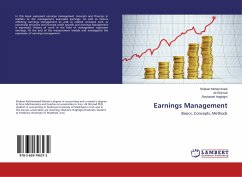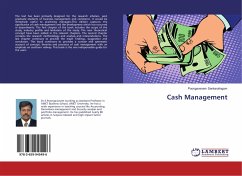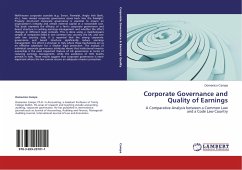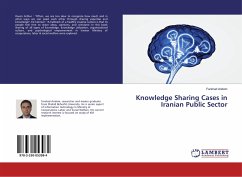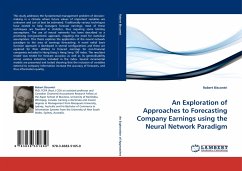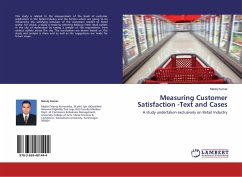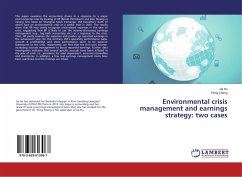
Environmental crisis management and earnings strategy: two cases
Versandkostenfrei!
Versandfertig in 6-10 Tagen
27,99 €
inkl. MwSt.

PAYBACK Punkte
14 °P sammeln!
This paper examines the accounting choice in a response to a major environmental crisis by looking at BP (British Petroleum) and Zijin Mining (a mining firm listed on Shanghai Stock Exchange, ZM hereafter), both of which face an environmental crisis at a similar level in 2010. The results show that BP may overly recognize crisis-related expenses in the year of crisis, suggesting that BP is likely to use the income-decreasing earnings management (e.g., big bath accounting etc.) as a response to the crisis. Then, BP partly reverses the expenses and pushes up reported earnings in the subsequent y...
This paper examines the accounting choice in a response to a major environmental crisis by looking at BP (British Petroleum) and Zijin Mining (a mining firm listed on Shanghai Stock Exchange, ZM hereafter), both of which face an environmental crisis at a similar level in 2010. The results show that BP may overly recognize crisis-related expenses in the year of crisis, suggesting that BP is likely to use the income-decreasing earnings management (e.g., big bath accounting etc.) as a response to the crisis. Then, BP partly reverses the expenses and pushes up reported earnings in the subsequent year. On the contrary, ZM's operating performance (sales growth & profitability) and stock performance seem to be superior subsequent to the crisis. Importantly, we find that the firm uses income-increasing accruals management to boost reported earnings. Further data investigation indicates that several specific accruals have been inflated in the year of crisis: i.e., provisions for asset impairment, accounts receivables and inventories. In addition, a few real earnings management items have been examined, but the findings are mixed.




